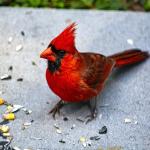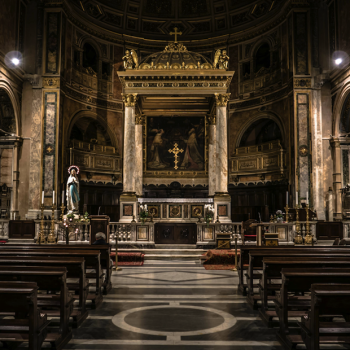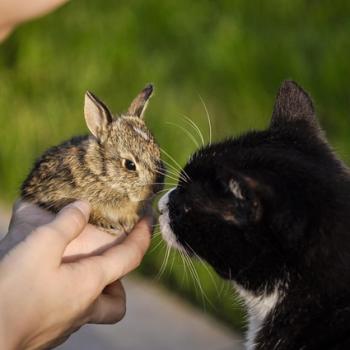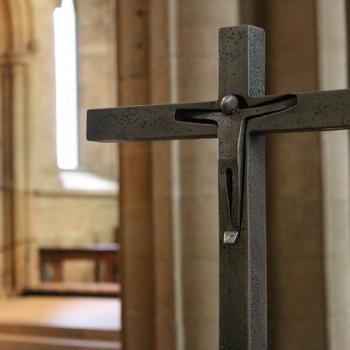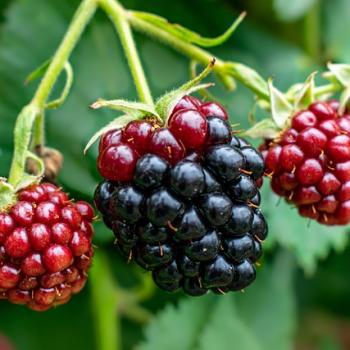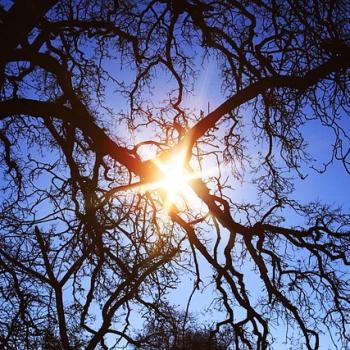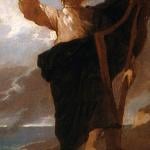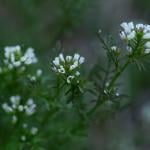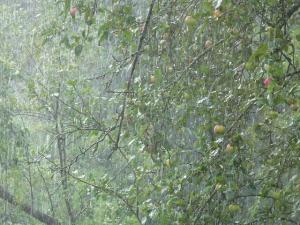
I’d never grown a pumpkin successfully before.
The Ohio Valley has a relatively short growing season. You’re supposed to start your winter squash seed outdoors in the first week of May, but this has never worked. If you grow a Three Sisters patch with corn, beans and winter squash, you’re supposed to plant your squash when the corn is 5 inches, but this is a mistake in Northern Appalachia. Corn takes to the soil and jumps up too fast, shading the squash. The squash will never get bigger than a seedling. This year, a Jack O’Lantern I threw out after last Halloween took to the compost and germinated. I had pumpkin seedlings springing up for free, starting in early April. And thanks to the mild winter, they didn’t get killed off in a frost. The one that sprang up in the tomato patch already died for the year, leaving me a bright orange pumpkin that won’t last long enough for October carving. The next one had its fruit pilfered and eaten by a raccoon a few weeks ago. The ones snaking out of the compost itself have six or seven female flowers, four of them bulging healthily as if they’ll really give me a pumpkin instead of drying out and falling off. Two are already looking like squash instead of flowers, though they’re still green.
I didn’t plant these; they just came to me, and I take care of them. Half the beautiful things in the garden are that way. Nearly all the sunflowers came out of the compost from last year’s plants. Some of my tomatoes are volunteers as well. All I do is water them, and put down pepper. Raccoons are too clever to be fooled by a cage trap, and I’ve had no luck catching the groundhog either, but raccoons and groundhogs hate capascin. if I sprinkle more than a little cayenne pepper on my ripening squash and tomatoes, they’re safe from being eaten by rodents. Maybe next year I’ll grow hot pepper plants as a barrier fence around the pumpkins.
I was bending over to examine the layer of pepper on the pumpkins, when a boy came appeared through the weeds on the side of the yard by the haunted house.
It wasn’t Jimmy’s boy. This one was a little older, blond, skinnier. Half his face was decorated with army green face paint on one side, and his shirt was green as well. He looked like a soldier sneaking through the jungle next to the dead neighbor’s pokeberry.
Children, like pumpkins, are a thing that appear. You can never own one. They come into your life by the mercy of God, and you welcome them while they’re passing through, that’s all.
“Hello,” he said awkwardly, when he realized he’d been spotted.
“Hello.”
“I’m just taking a short cut home!” He gestured to the house across the alley, the one with the new fence and the trampoline.
“Oh, you’re welcome to cut between houses. The lady who owns that house doesn’t live here anymore, so she doesn’t matter and I don’t mind.”
It’s not as if I have any right to mind if a child uses the side of my yard as a thoroughfare. It’s not even MY yard, strictly speaking. It belongs to the landlord. I feel as if we’re the last people in America who rent a house from a human being instead of a giant corporation, just mailing him a check every month. And it’s lucky we do, because this has been the worst summer in awhile, with my being sick as long as I was. I lost so many little writing projects I meant to do. This is the third or fourth month we had to ask him for a few extra days when we didn’t have rent right on the fifteenth, and he had mercy. He doesn’t want to lose a tenant he knows will good for the rent within a week. A giant corporate landlord wouldn’t make that calculation.
After the young soldier had continued through the jungle, I went to put away the sand toys. Jimmy’s boy comes over to play in the sandbox whenever he’s bored, but he often doesn’t clean up after himself. The lid of the big green plastic turtle on the patio was ajar. Neon-colored starfish and seahorses were scattered here and there. I cleaned it all up so the promised rainstorm wouldn’t spoil the sand. I can’t get new sand home to that sandbox until we replace the car, and we can’t even think about that car until we’re sure we have our house for another month.
It’s not even my sandbox. Ms. B passed it along to me when she was leaving it out for the bulk trash pickup. So now it’s the neighborhood sandbox, for the children to play with as long as they’re careful of the garden.
It could be that nobody really owns anything. I certainly don’t. Maybe rich people in strange foreign places have property that’s theirs, but I couldn’t possibly. I’ve never owned a thing. Things just come to me, that’s all.
I went to bed, looking forward to that rain.
I woke up and found that the rain hadn’t come. By the time I took my shower, a little splash had come and gone: a momentary burst that wet the sidewalk but didn’t even soak the garden. The soil was still yellowish, parched. I’d have to borrow the other neighbor’s hose again. This summer has been one long miserable drought, and I was starting to lose my patience.
Adrienne’s father packed the rolling hand cart with our wet clothes. The washing machine works fine, but the dryer still doesn’t heat up, and able to repair it, so we’ve been dragging the laundry down to the laundromat to dry. He was making his way down the steep hill towards Washington Street when he ran into Pete who brought the beach.
Pete lives around here, in one rental and then another. He doesn’t have a car and that’s probably a good thing. Once or twice he got kicked off the bus for an open container. He paints landscapes with his fingers or a cheap brush and poster paint on the backs of cardboard beer cases. Sometimes he finds thrift store picture frames and makes abstract compositions inside the glass with play clay from the dollar store. He panhandles by selling his art to bemused customers outside the grocery store. I’ve bought three pieces. But today, he wasn’t making any art. Today he had the shakes.
Pete said he been in the hospital with heatstroke once this summer and hoped he didn’t get another, on such a humid day. He asked for a dollar, but Michael only had the ten he needed to break at the laundromat change machine.
Michael meant to go to the store on his way home anyway. If he leaves our laundry in the laundromat dryer he has just enough time to walk to pick up a few things at the grocery store before it finishes. Today he had just enough money to buy our dinner and also Gatorade, a gallon of spring water and a few snacks for Pete, who was glad to see them. He didn’t have time to go back to the laundromat for our clothes before it rained.
The rain came down in buckets, washing the pepper off the pumpkins, drenching the soil for free, drenching the houses and the cars and the streets of LaBelle. It fell on my garden and my clover and my dead neighbor’s weeds. It fell on the just and the unjust. It fell on the poor who own nothing and the rich who think they own things. It blew sharply east towards the cliffs of West Virginia while the gutters ran west downhill past my house, looking like an optical illusion. The temperature went down, the humidity cleared, and life was worth living, for the Almighty has done great things for us, and Holy is The Name.
And then it was sunny again.
I went out to check on those pumpkins.
All was cool and quiet, beautiful and vibrant as an Appalachian late summer can be.
And then it rained again.
Mary Pezzulo is the author of Meditations on the Way of the Cross, The Sorrows and Joys of Mary, and Stumbling into Grace: How We Meet God in Tiny Works of Mercy.



